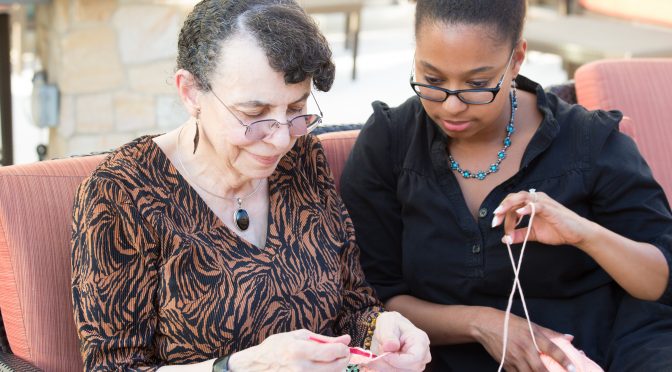Last week’s blog looked at caregiving during the COVID-19 pandemic. For the most part, choices for caregiving for a loved one in long-term care or at home has been difficult. It is never easy under the best circumstances. Unfortunately, the COVID-19 pandemic highlights the challenges faced by caregivers, both formal and informal. This week, we review situations faced by caregivers and potential policies that could help alleviate the caregiving burden.
Caregiving Challenges in Long-Term Care
For the formal caregivers who work in long-term care, COVID-19 has made a challenging work environment more so. For example, the shortage in personnel, exacerbated by a high turnover rate, made a difficult situation worse. It is usually an ‘all hands-on deck’ environment. With COVID-19, the need for personnel to take on additional responsibilities increased. Staff work overtime, and then some.
Addressing the Needs of Long-Term Care Staff
If direct care workers were paid a living wage, the turnover rate could be lessened. Career ladders would also offer an incentive to stay. Better training and support for caregivers would help make their jobs easier. Long-term care staff can use tools to help support their work with residents who have challenging behaviors. Medication to chemically restrain residents is not a feasible approach. Using alternative methods such as music, pet, and touch therapy need to be provided through long-term care staff training.
The Challenges of Family Caregivers
Family caregivers face multiple challenges. First, caregivers may be working outside the home in addition to being a caregiver. Second, they may also be caring for children as well. Third, they have to be concerned and vigilant with any possibility of exposure to COVID-19 and the implications that follow. Balancing work and family responsibilities is always stressful, but adding COVID-19 as a factor makes it so much worse.
Supporting Family Caregivers
Work environments need to offer more flexibility in caregiving for family members. Paid leave, similar to that for new parents, should be extended to family caregivers. Also, offering pay for caregiving may also offer support for caregivers who cannot work outside the home but need to earn wages.
While the policies are not inexpensive, and not all companies or states are currently positioned to offer these benefits, they are still valuable. We need to value the work given by both family and long-term care staff. Enacting and paying for these policies would accomplish that.
Kathy Dreyer, Ph.D., is an Advisor at AGE-u-cate® Training Institute, which develops and delivers innovative research-based aging and dementia training programs such as Dementia Live® and Compassionate Touch®, for professional and family caregivers; kathy.dreyer@ageucate.com



